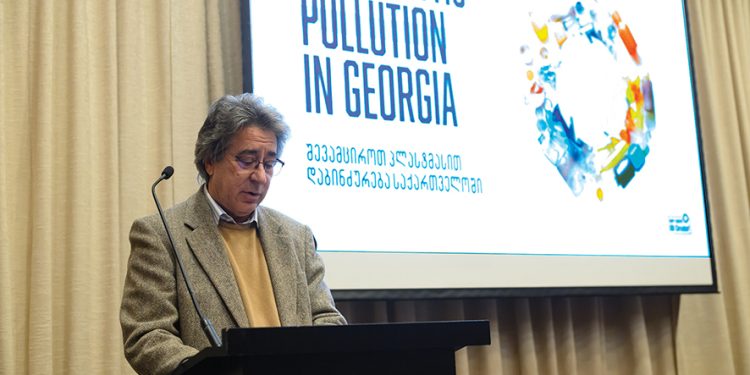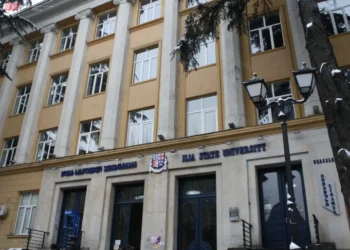Plastic pollution remains a challenge globally, and Georgia is no exception. Taking into account the threats and visibly alarming changes related to climate change, CENN, with the support of the United Nations Development Programme and Norway, and in partnership with the Ministry of Environmental Protection and Agriculture (MEPA), has launched a new project “End Plastic Pollution in Georgia” to help the country advance towards a circular economy and “green” solutions.
The project, supports MEPA to increase the knowledge and capacity of stakeholders and the general public concerning circular models for plastic waste management.
The project launch event took place on February 9 at Radisson Blu Iveria Hotel. Key figures Douglas Webb, UNDP Resident Representative a.i. in Georgia; Rebecca Lie, Deputy Ambassador of Norway to Georgia; Alverd Chankseliani, Head of Waste and Chemicals Management Department (Ministry of Environment Protection and Agriculture of Georgia); and Laurent Nicole, CENN Executive Director, delivered welcome speeches at the launch, outlining their goals and plans for the initiative in Georgia.
This project aims to mitigate the environmental impacts of plastic, the need for which has never been greater, and to promote circular economy among the Georgian population
Douglas Webb welcomed the launch of the project and emphasized the need and importance of such initiatives worldwide to tackle climate change. He expressed satisfaction to continue the UNDP’s long-standing partnership with MEPA and CENN, “an organization at the forefront of environmental protection efforts,” to improve and increase the country’s environmental resilience and energy efficiency.
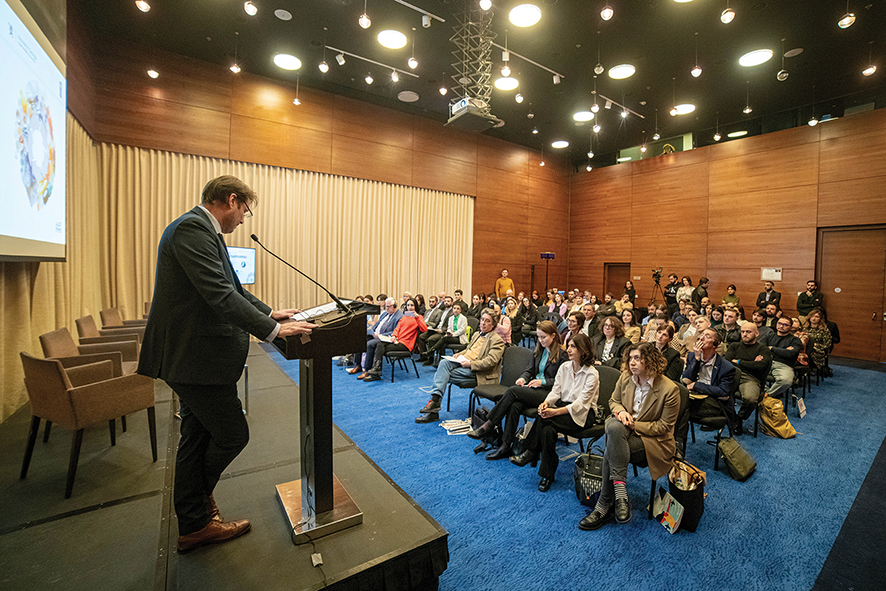
“This project aims to mitigate the environmental impacts of plastic, the need for which has never been greater, and to promote circular economy among the Georgian population,” Webb noted. “For this, having common sense and involving the public is crucial. This project also aims to raise awareness among society regarding the importance of keeping the environment clean. On behalf of the UNDP, I’d like to thank our partners – MEPA, CENN, and Norway, for their valuable work and partnership with our organization on the path to sustainability and circular economy.”
Deputy Ambassador Rebecca Lie highlighted the urgency of the issue and the need for timely action in terms of mitigating plastic pollution in Georgia.
“We are already late, there is a lot to do, so I think we should start as soon as possible. It’s an urgent issue and I’m happy that we can work together with both CENN, UNDP and the Georgian government to achieve sustainable economy and ‘greener’ future,” she said, adding that Norway, having a long-standing dedication to sustainability and the global fight against plastic pollution, is more than ready to share its international expertise with its Georgian partners.
“In accordance with the Constitution of Georgia, everyone has a right to live in a healthy environment, and be informed about environmental issues. This new project serves exactly that purpose, and we’re happy to help the state institutions ensure enforcement of those human rights,” she stated.
MEPA’s Alverd Chankseliani in turn praised the long-standing partnership with CENN, UNDP and Norway in the battle against plastic pollution, and expressed readiness to continue the fight within the new project.
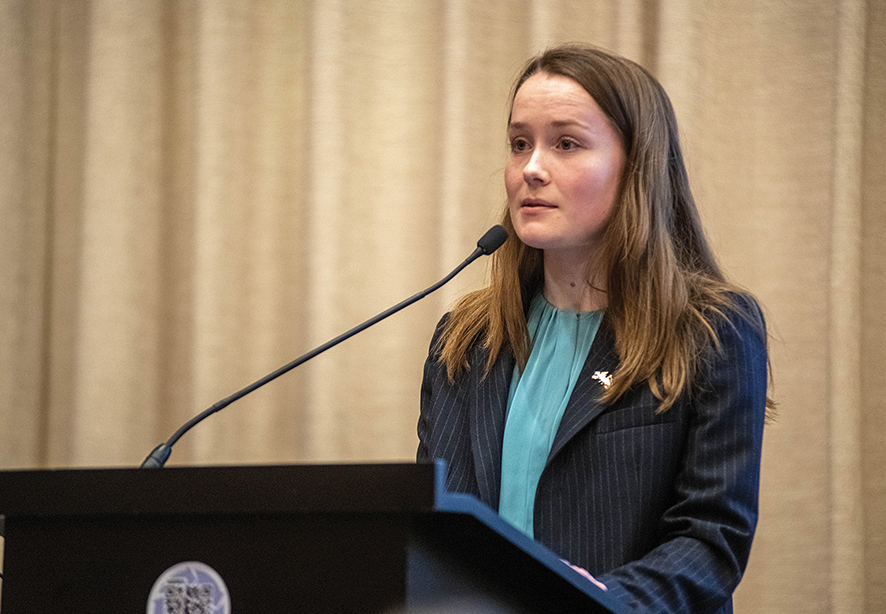
“Plastic pollution is a global challenge and a very serious issue,” he said. “To mitigate its serious impacts on human health and the environment, various measures are being implemented worldwide, including circular solutions. Of course, Georgia is no exception and we need to tackle and prevent plastic pollution through all the existing measures. Georgia, since joining the EU Association Agreement, has an obligation to develop the modern system of waste management, which also includes plastic pollution prevention.
Now with the country having received Candidate Status, for which we are very thankful to the EU, we have even more responsibilities in this regard,” Chankseliani added. “The project End Plastic Pollution in Georgia, funded by the Norwegian government, serves these purposes, and we’re very thankful to our partners for their dedication and efforts. CENN has much experience in waste management, and I believe that with our cooperation, the project will be successful, helping Georgia to advance towards a “green” future and a more sustainable economy.”
Executive Director of CENN Laurent G. E. Nicole, talking about Georgia’s recycling culture, emphasized the need for civic education and raising public awareness in the battle against waste.
“We, at CENN, are forever committed to achieving sustainability. Our vision is to preserve our planet’s resources for future generations. We see the circular economy as the only viable feature both economically and environmentally. Civic education and public awareness is a crucial element. The citizen is a key factor. If individuals are not able to respect their neighbors with regard to waste, we won’t go far,” he concluded.
Nana Takvarelia, Head of the new project, noted that nowadays, plastic pollution is devastating economies and environments globally, as well as human health. The project implemented by CENN aims to help the government of Georgia in its transition towards the circular economy in the country, which “is crucial for the healthy and clean future of the generations to come.”
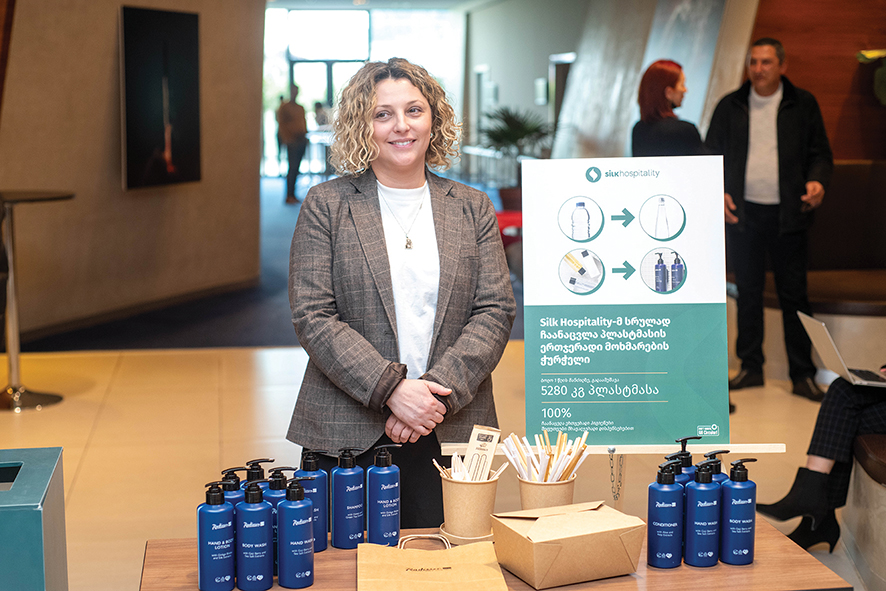
“The circular economy, which is based on two key principles – resource optimization and is the only beneficial and profitable solution both economically and environmentally,” Takvarelia noted.
Throughout the year, CENN, together with its partners, will work actively to inform society about possible threats of plastic pollution and the importance of circular economy as an enabler of sustainability. The project also includes conducting tailored trainings for different actors involved in the plastics value chain.
The event featured a thematic panel discussion, where government representatives, as well as those from the private and non-governmental sectors, explored concrete solutions for the circular economy in the country. Experts in the field addressed challenges in plastic waste management, modern approaches, and successful examples implemented in Georgia. The event concluded with an announcement of the plastic waste reduction campaign for businesses and organisations. Selected 10 businesses and organisations will work with CENN and experts to conduct waste audit, develop concrete interventions to reduce plastic consumption and procurement. Follow this link to register for the campaign: https://www.cenn.org/end-plastic-pollution-in-georgia-pledging-campaign.
The launch of the End Plastic Pollution project marks a significant milestone for Georgia as it takes a crucial step towards transitioning to a circular economy and furthering its European integration efforts.
Photos: UNDP/Gela Bedianashvili
CENN/Giorgi Bejashvili
By Ana Dumbadze and Shelbi R. Ankiewicz

